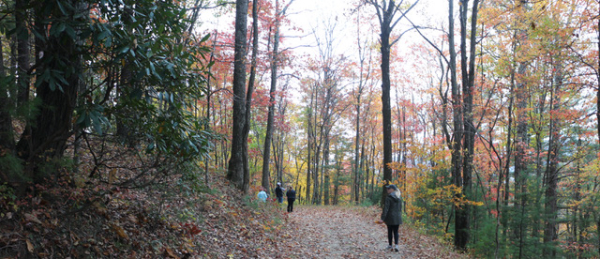The social distancing caused by the coronavirus pandemic has proven to be both a blessing and a curse to the outdoors. The blessing part came from the sudden discovery of the benefits of being outdoors. Unfortunately, the curse came from there as well.
With tens of thousands of neophytes flocking into the wilds, it was inevitable that some of the more inexperienced would get into trouble. And they have. Today, wildlife and conservation officers have no shortage of stories that range from hilarious to tragic about people who wandered into the outdoors with little, it any, consideration as to what would be waiting for them once they arrived in “the outdoors.”
For most of us, the idea of heading out for a hike on a trailhead marked “moderate” without hiking boots, water and maybe even a walking staff is just crazy. But this summer I’ve seen people on those trails in everything from sandals to Crocs. I watched as one young mother struggled up a steep hill in what must have been very fashionable, but virtually useless sneakers with ridiculously tall soles. Her husband and children had scampered ahead, leaving her tired, irritable and complaining to anyone who passed that there should be more information posted at the trailhead about what a “moderate” trail involved.
For once, I kept quiet and kept walking. There wasn’t anything I could tell her she hadn’t already learned the hard way. Trails are paths through the wilderness, they are not sidewalks through a city park.

No all the stories are so benign. Across the country, unconsidered adventures into the wilderness have turned to tragedies. Just this week, a friend told me of two friends visiting Martha’s Vineyard who decided to go kayaking. After a long paddle against the current, they decided to take a quick, cooling swim. One of them left his life jacket on the kayak, despite the strong current they’d just paddled through. His body was recovered that afternoon by the Coast Guard.
Unfortunately, neither of these stories are unique. Everything from snakebites to bee stings, broken bones, and injured knees, ankles and hips have caused wildlife and natural resources officers to spend increasing amounts of time on emergency calls. The numbers of search and rescue operations have skyrocketed as well. Operations have been further complicated by the fact many S&R workers are volunteers. Many of the older ones have opted out during the pandemic, making operations even more difficult.
The strains on state budgets have officials wondering if it’s not time to start charging for those rescues, especially those caused by ignorance or ignoring basic safety considerations. New Hampshire, for example, passed a law in 2008 that allows it to seek reimbursement for rescues officials say are caused by the rescued person being negligent. Officials say it’s not invoked very often, saying the law’s primary function is to encourage people to be prepared.
Five other states, Hawaii, Idaho, Maine, Vermont and Oregon have similar laws allowing them to bill for the cost of rescues in certain situations. In March 2020, South Dakota governor Kristi Noem signed Senate Bill 56, allowing rescuing agencies to charge each person as much as $1,000.
Arizona’s considering a measure patterned after their Stupid Motorist Law (AZ 28-910), it’s rarely enforced, but says that if a driver drove through floodwaters then needed help “the expenses of an emergency response are a charge against the person liable for those expenses.” Officials say it’s seldom enforced.
In June, Phoenix Parks and Recreation restricted access to popular hiking trails during periods of high heat. The restrictions came after the United Phoenix Firefighters Association asked for the action to protect first responders.
From New Hampshire to Colorado, cases where people have to be rescued for everything from being unprepared for weather conditions to failing to bring water on hot days are more common. Colorado’s introduced legislation to provide more benefits to search and rescue teams, but says no plans are in place to start charging for rescues. That’s partly in recognition of the fact that many people might not call for help if they thought they’d be charged for it.
For many newcomers, sixty degree temperature swings in 24 hours are unimaginable. For anyone who’s been to Arizona’s Gunsite Academy and trained in sweltering heat one day only to find it snowing the next, it’s just life in the wide open spaces. But not all of the wide open spaces have a pro shop where you can get hats, gloves and jackets. It’s also why most of us have things in our vehicles others sometimes find puzzling. It’s always surprising to me that these same people wouldn’t consider riding without seat belts, but think a first aid kit, bottle of water and a blanket are “excessive”.
The frightening realization is that many of the people heading out for “outdoor adventures” today have no idea how rapidly situations can change in the outdoors.
Hopefully, they’ll learn before making serious mistakes, not because of them.
We’ll keep you posted.
— Jim Shepherd